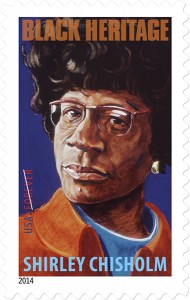I was nine years old when I rigged my first election. Shirley Chisholm made me do it.
“All right, boys and girls,” my teacher, Mrs. Schnassi, called our fourth grade class to attention one day in October 1972. “This week’s Explorer newsletter is about next month’s election.” The fateful presidential campaign between then incumbent Richard Nixon and Democratic challenger George McGovern was in full swing, and was a topic of almost daily discussion in Mrs. Schnassi’s classroom.
“If you look at the back page, you’ll see the ballots” Mrs. Schnassi continued, holding up a newsletter. “You can just check off which candidate you support and then cut it out. Let’s hold our own election for president and…. Umm, yes, Lourdes?”
My hand shot up in the air even before Mrs. Schnassi finished asking for a volunteer. “Mrs. Schnassi, can I be in charge?”
“Well, yes, that’s fine Lourdes, you can collect the ballots and we’ll announce the winner at the end of the week. Everyone, think about who you will vote for and why, and then make sure to give your ballots to Lourdes by Friday. Now let’s do our current events. Does anyone have a newspaper article that they would like to share with the class. Lourdes?” Mrs. Schnassi again acknowledged my raised hand.
“I have an article about the Equal Rights Amendment, and what the candidates are saying about it,” I offered up.
“Good, fine, come up to the front and tell everyone about it,” and I hurried up to the blackboard to begin my prostelyzing on women’s rights.
In fourth grade I established myself as a class politico, inspired that summer by watching the Democratic National Convention on the little black and white television in my mother’s bedroom. It was nothing like the conventions of today, those pre-rehearsed, well-choreographed advertisements for the candidate who is anointed as the party’s “chosen one” months before. The ’72 convention was all rough and tumble, people actually debating what should go in the party platform, the minor candidates using their votes from the primaries to push the frontrunners to adopt certain positions. I became a convert as speaker after speaker denounced Nixon as the enemy of the middle and working classes, an elitist who cared more about big business and was sending young men to die in a war the U.S. should have never entered in the first place.
And then there was Shirley Chisholm. The news commentators announced her as the first woman to run for president, and the first black woman at that. I was awe-struck not by her accomplishment but because it was the first time it hit me that I lived in a country where, in fact, women weren’t equal citizens. Before her speech at the convention podium, another first for a woman, the idea that people thought I was somehow lesser because I was a girl hadn’t yet crossed my radar. Heck, all the best students at my school were girls. They had the highest grades, and won the spelling bees and science fairs. The Republican Party was really out to lunch if they thought the boys in my class were going to lead the Free World one day. Even though she didn’t win the nomination, Congresswoman Chisholm’s fiery speech about the ERA and women’s rights sealed my allegiance to the Democratic Party. Nixon became “the Man” and I became a subversive. Sort of.
I spent the rest of the week ostensibly reminding my classmates to vote but really campaigning for my candidate. I can’t recall the conversations exactly but I know I cornered kids all over the school to get them to vote for McGovern.
I campaigned in the schoolyard at lunchtime. “Hey,” I came up behind Denise, Linda and Jenifer as they were taking turns throwing a pink rubber ball against the concrete wall for each other to catch. “Who are you going to vote for, you’re going to vote McGovern, right?”
“Yeah, sure,” said Linda as Denise and Jenifer nodded in agreement. I knew I could count on my class’s Irish-German working class bloc.
“Great. Did you see The Partridge Family last Saturday?” I asked. “Weren’t those hot pants that Laurie was wearing really cute?”
I campaigned in the auditorium during weekly assembly. “Who are you going to vote for? Pass it on to Lisa A.,” I whispered into the ear of the girl seated to my left. I watched as the message went down the row of classmates, each cupping her hand to the ear of the girl to her left, and then as Lisa’s answer made its way back to me.
“I’m voting for Nixon. Bring your Barbies to my house when you come over this afternoon,” was the message whispered into my ear. I should have known Lisa would vote for Nixon.
I even campaigned in the “eraser room” near the principal’s office. “Sandra, do you know who Rachel is going to vote for because, you know, the rumor is that she’s a Nixon supporter and I just don’t want to see her make a mistake,” I asked as we passed the black felt erasers over the vibrating metal machine to shake out the chalk.
“I don’t know. Did you do your book report yet? “
Of course, I didn’t talk to any boys. After all, they were the enemy.
As the week proceeded, my classmates’ ballots slowly dribbled into me. I kept them in an envelop in the shelf under my desktop. I wouldn’t do a finally tally until Friday morning, but I kept a running count as they came in. The race was a virtual dead heat, but I remained confident that my man would pull it out at the end.
So I was surprised to find the vote 17-15 for Nixon when I did the final count during class free time at the end of the week. I counted the ballots out on the shelf under my desk, and recounted them, and counted them a third time, and still came up with Nixon ahead by two votes. I don’t remember thinking a long time about it. I just knew I could not let Nixon win. Luckily, we were still young enough that we used pencils to do much of our work. It would have been much more difficult to falsify the results if they had been inked. I looked around the classroom, and saw Mrs. Schnassi grading that morning’s spelling test. Other classmates were huddled in small groups talking and scribbling notes. Mrs. Schnassi’s little white poodle, which she sometimes brought in to class as a treat, was sniffing the green metal trashcan by the sink. No one was paying any attention to me. I made my move. With a stroke of an eraser and then a pencil, Nixon and McGovern were tied and that’s how I reported it when Mrs. Schnassi asked for the results.
Yes, it was because of Shirley Chisholm that I, a Junior Girl Scout with a crush on the pop singer Bobby Sherman, a girl who wore a pink polyester pant suit with a huge ruffle down the front for her class picture and loved Swanson’s frozen shrimp croquettes, interfered with the electoral process of a free and democratic fourth grade class. Of course, it would turn out to be the only election I would ever throw, but at the time I thought it was my first step in a life of political intrigue.
I do wonder now why I made it a tie instead of a clear win for McGovern. I mean, if I was going to engage in elections fraud, why not make my man the clear winner. Perhaps I was feeling slightly guilty alongside my satisfaction at sticking it to Nixon? Or maybe I was worried about getting caught if I changed more ballots? What I would give to be back in the mind of my nine-year-old self so that I could know why.
I was deflated when Nixon won the real election. But later on I had my I-told- you-so moment as I’m sure did many of my fellow democrats. One evening in August 1974, just a few weeks before I was to start sixth grade, I was outside in the large courtyard behind our apartment building playing with friends. Despite a full day outside, I was sure I had at least another half-hour of play time before my mother decided it was getting dark.
“Lourdes, come on in here,” my mother called through the screen on the kitchen window.
“But Mami, it’s still light out, can’t I just stay out a little while longer,” I argued back.
“No, come in right now, there’s something I want you to see,” she replied.
I trudged through our apartment’s door to the courtyard and made my way to the living room where she was seated on the coach.
“Sit down and watch this,” she said, motioning to the picture of President Nixon on the television monitor. I distinctly remember her reply to my grumbling and protests: “This is history being made,” my mother said as she pulled me down beside her on the coach to watch President Nixon resign.
“Hah!” I thought to myself, “I was right, I was right, I was right!”
Shirley and I had our day after all. The irony that I too had done something crooked did not yet dawn on me. I just turned to my mother to ask if I could watch television before bed when this boring speech was over.
Post-note: I wish I could have changed last week’s election as easily as I did in fourth grade!






